Corporate finance is one of the popular career aspects for most commerce and accounting students, especially in India. Due to the number of international companies coming down to make a spot in the Indian market, the need for corporate finance professionals is also increasing. For a long time, we have all been hearing of CA as the most lucrative career option for commerce students, due to its popularity. But there are some others which you as an aspirant might not be aware of. We will take you through three major finance certifications that will help you build a successful career in corporate finance. It will also help you understand the options available to you if you are someone who has a keen interest in banking, finance, and auditing.
CA (Chartered Accountancy)
Chartered Accountancy is one of the most lucrative and popular career options in India. It mainly aims at teaching the nitty-gritty of managing finances, accounts, business strategy, auditing, taxation, and other money matters for an entity.
What do you do as a CA?
CA professionals are known to work with various entities to help them figure out finances, and provide guidance and financial advice to help out the organization or person with money management. It can be business, individual, or government.
You can work for businesses, industries, institutions, and CA firms. Not only that but you can also start your own CA firm. It provides a versatile career path that is appealing to you as per your requirements and interests.
Who is eligible?
This question can have two answers based on who you are talking to. One is you can start with the preparation just after your Higher Secondary level that is 12th standard or you can pursue it after completing your graduation or post-graduation.
Exams in the route
There are three important stages of becoming a CA in India. The CA foundation course, the IPCC exam, and CA final course. The three courses become two if you are attempting it after your graduation or post-graduation. You will be exempted from the foundation course if you have secured an aggregate of 55% in graduation or post-graduation through the commerce stream.
CPA (Certified Public Accountant)
With Globalization ticking in and India becoming an IT and BPO hub for the last few years, the popularity of the CPA course is also increasing day by day. These professionals are in demand, especially in the MNCs dealing in IT services and finance. The CPA course and professionals are accredited by the American Institute of Certified Public Accountants (AICPA). They are responsible for taking care of bookkeeping, financial planning, and preparing tax return documents along with profit and loss statements.
Who is eligible?
CPA is a course that requires an all-round educational background. The minimum eligibility criteria for becoming a CPA is a Master’s degree in Commerce or an MBA or BCOM + CPA. That means you require formal education of around 6 years in total.
Exams in the route
There is only one exam for becoming a CPA-certified professional. The CPA exam is divided into 4 modules namely: Auditing and Attestation, Financial Accounting, and Reporting, Regulation, and Business Environment Concepts. You have to complete 150 hours of course semester to finally be ready for the CPA exam. It is a 16-hour assessment that aims at testing your knowledge about the course and finally awards you the degree if you clear the test.
Certified Management Accountant (CMA)
CMA is again a new career prospect for students with a commerce background. It comprises management accountancy that can help in financial accounting and strategic business management. CMA professionals do not go into auditing, taxing, or general accounting, but assist an organization in business management and forming strategies.
Eligibility criteria
CMA is gaining popularity over the last few years and many students are aspiring to become CMA professionals. But before you sail your ship toward the destination, you need to understand the eligibility criteria before getting into the ship. Here is a small list that can help you:
- You should be a member of the Institute of Management Accountants (IMA)
- Bachelor’s degree
- 2 years of relevant experience
- Passing both parts of CMA examination
Exams in the route
The CMA exam is divided into 2 parts of 4 hours each. You have to clear or pass the exam within 3 years of enrolling for CMA. It covers everything from financial reporting and cost management to corporate finance and risk management. You can appear for these exams in January, February, May, June, September, and October.
When it comes to pursuing a certification or an educational qualification, the aim is to add credibility and earn respect. In both cases, you need something really solid foundation built which will bring you to the level you want to see yourself. The courses we discussed so far are exactly going to help you bring out the best in you in the long run.
FRM (Financial Risk Manager)
The FRM certification is designed for professionals who want to specialize in risk management. It’s particularly valuable for careers in risk assessment, risk analysis, and risk mitigation.
What do you do as an FRM?
FRMs identify, assess, and manage various types of financial risks, including market risk, credit risk, operational risk, and liquidity risk. They play a crucial role in ensuring organizations make informed risk-related decisions.
Eligibility and Exams
To become an FRM, you need to pass two exams: Part I and Part II. The exams cover topics like risk management tools and techniques, quantitative analysis, financial markets and products, valuation and risk models, and risk management and control.
CFA (Chartered Financial Analyst)
The Chartered Financial Analyst (CFA) certification is highly regarded in the field of investment and portfolio management. It is particularly beneficial if you’re interested in roles related to asset management, investment banking, or equity research.
What do you do as a CFA?
CFAs analyze investments, provide financial analysis, and make investment decisions for individuals and organizations. They are experts in evaluating financial instruments, assessing risk, and creating investment strategies.
Eligibility and Exams
To become a CFA charter holder, you need to pass three levels of exams: Level I, Level II, and Level III. The exams cover topics like ethics and professional standards, quantitative methods, economics, financial reporting and analysis, corporate finance, equity investments, fixed income, derivatives, alternative investments, portfolio management, and wealth planning.
What next?
Miles has partnered with US universities to incorporate Business Analytics into their Master in Accounting programs, resulting in the STEM certification (Science, Technology, Engineering, and Mathematics) of these programs. Consequently, graduates from Miles who choose to enroll in these programs are eligible for the same 3-year work permit.
Why should you join the club?
- With a CPA + Masters, you earn $60,000+* as a fresher! (That’s 50 lakhs+)
- If you have experience, your pay may be much higher!
Conclusion
The world of accounting offers diverse opportunities. Beyond the traditional CA paths, certifications like CPA, CMA, FRM, and CFA open doors to specialized roles. Miles’ collaboration with US universities, integrating Business Analytics into Masters in Accounting programs, enhances prospects with STEM certification and extended work permits. These certifications ensure expertise, credibility, and high earning potential in the dynamic Accounting landscape. Choose wisely and invest in a successful future.






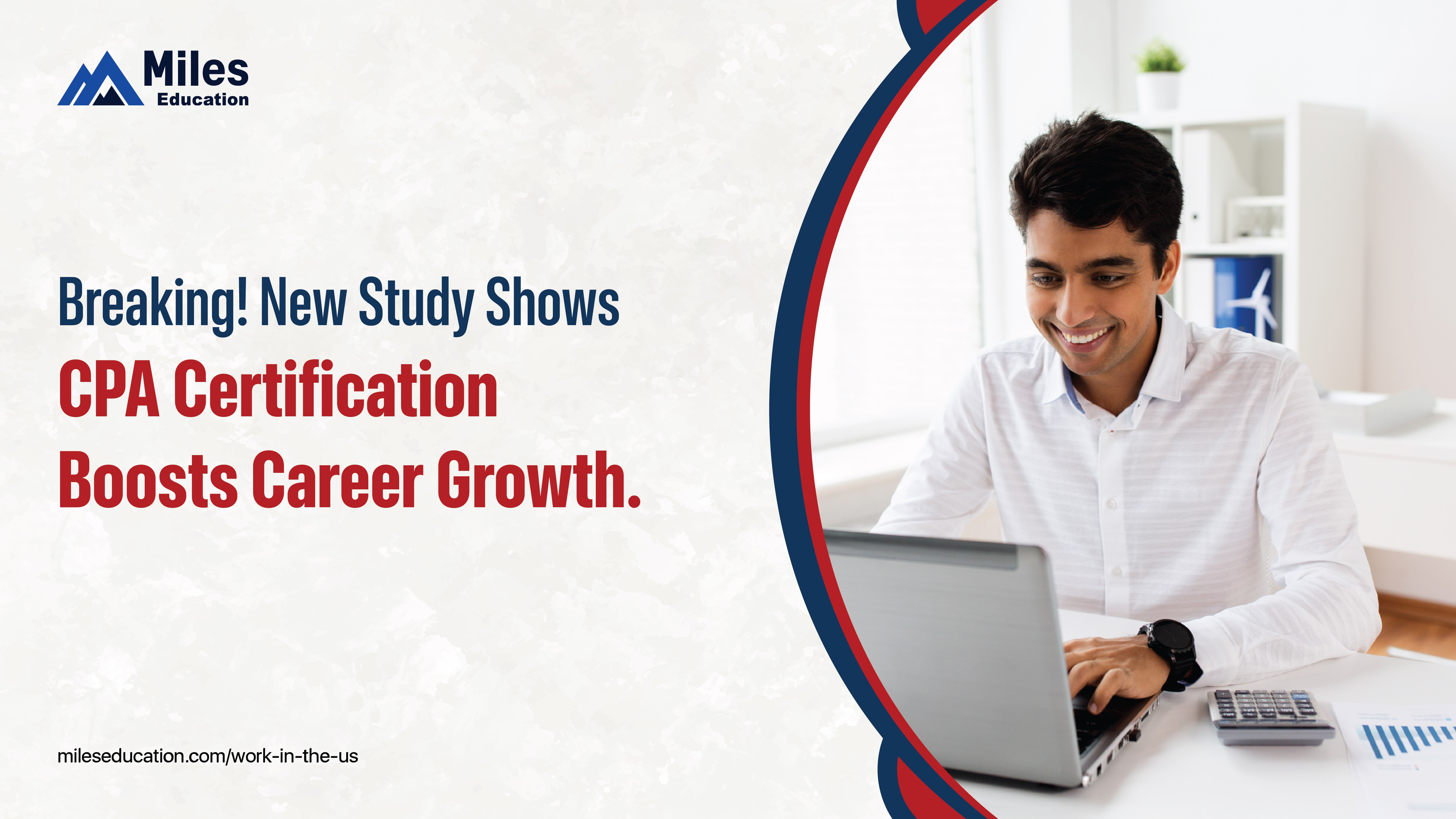

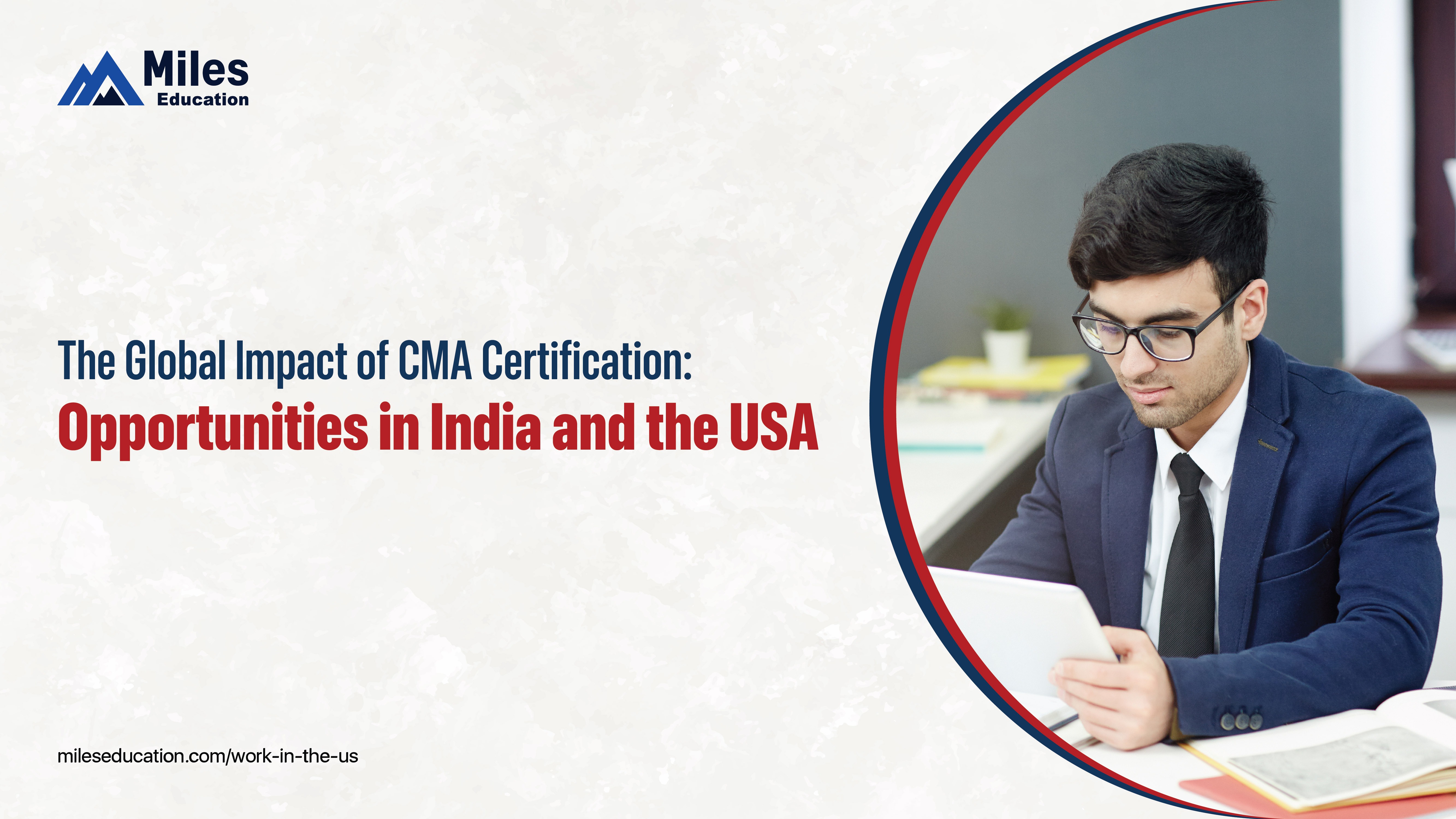



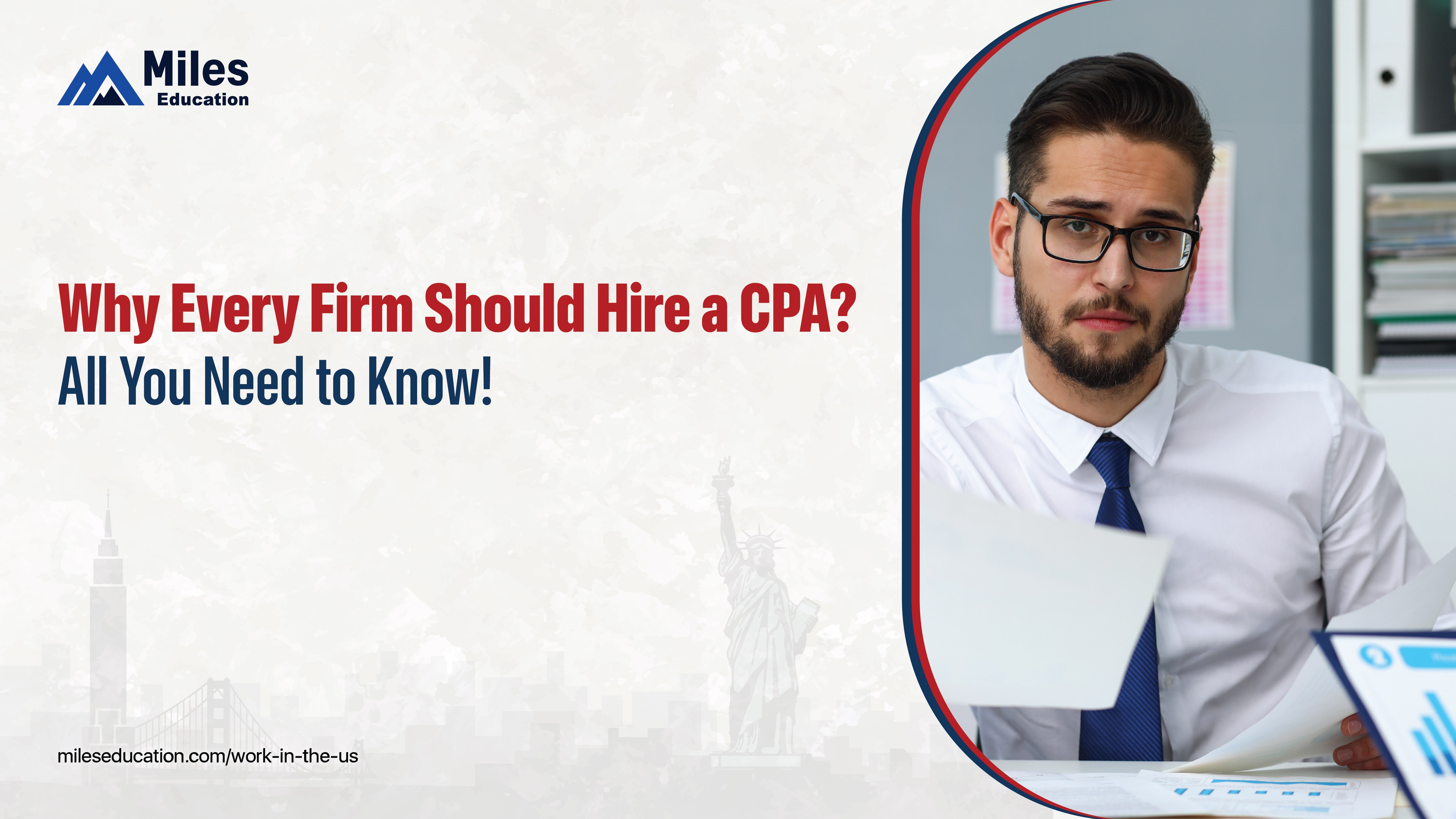




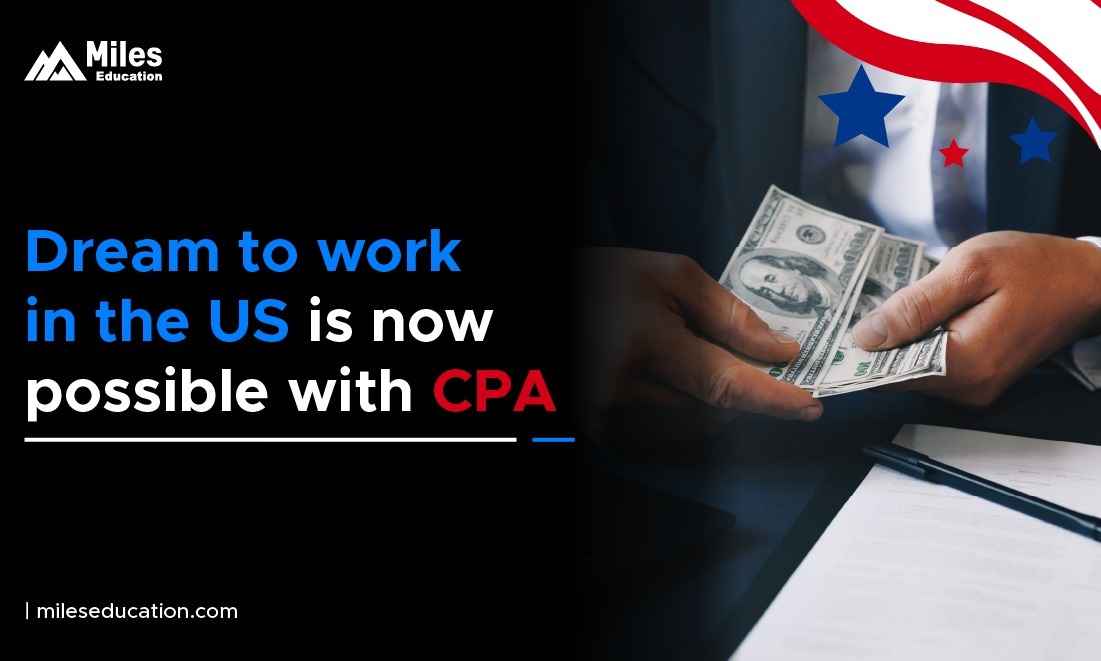

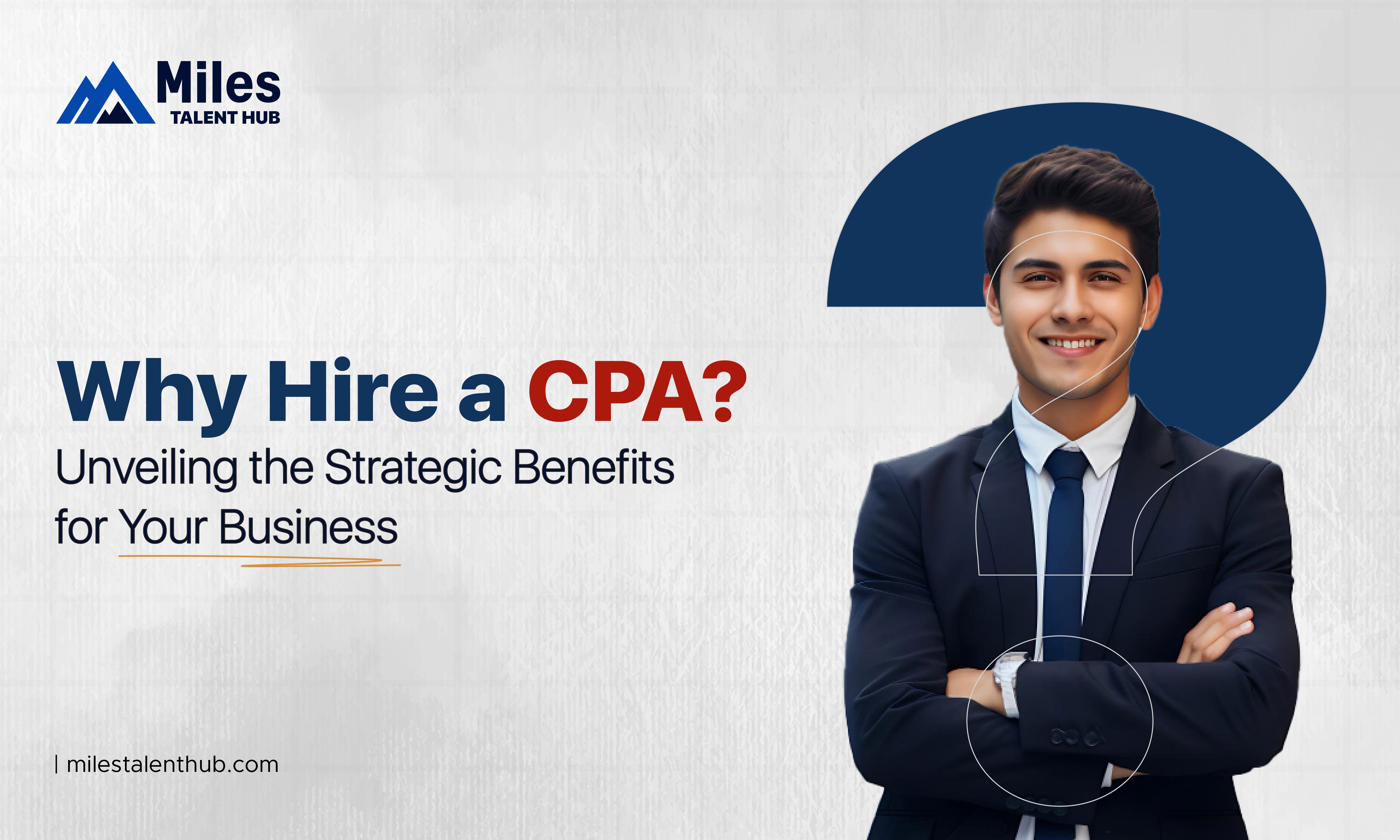






23 thoughts on “Top 5 Accounting Certification for the best career!”
Very informative blog for those who want to pursue their career in finance.
Very Demanding Qualifications CPA CMA
We all know the demand for commerce carrer is increasing. One of the reason is commerce graduates will have more job opportunities. This article helps to understand more about ‘ finance and accounting for successful career’ and courses and the information regarding it.
Thankyou.
thanks for making us aware and telling us basic difference between CA, CPA and CMA.
The content of this blog is very useful for commerce student’s. It gives a overall idea financial and accounting certification for a successful career.
Very informative article! Gives a gist about various career options in finance along with basic differences between them.
This article really as though many people in India doesn’t know the demand for these courses.
Wow! Super informative blog and really helpful to understand these various finance & accounting certifications.
Very informative blog for those who want to pursue their career in finance
Very informative for all the commerce students and gives a clear picture about CMA, CPA and CA
Very useful blog. Understood the difference b/w Indian CA and US CPA. Came to know the eligibility for US CPA exams and the criteria for US CMA. Thank you.
It gives a overall idea financial and accounting certification for a successful career.
Very informative blog and gives the clear difference between CMA, CPA and CA
Thanks for sharing the details regarding US CPA, US CMA and CA . This will help students who are interested in joining in these courses
Wow! Super informative blog and really helpful to understand these various finance & accounting certifications.
A very informative blog… I got insights about all 3 professional courses.
helpful and very informative blog for various finance and accounting certications.
The content of this blog is very useful for commerce students. It gives a overall idea about financial and accounting certification for a successful career and US CPA and US CMA too.
Very informative blog. Gives clear n crisp information on the certifications.Accounting and finance certifications show employers that you have the skills and specialized knowledge to succeed. Thus, they are a great way to improve your reputation and job prospects. Great way to boost your career.
Insightful blog for all commerce students around the world who are looking to start their careers in Accounting. Also very relevant for Accounting professionals who want to better their credentials and upscale their careers!
Thank you clearing out things between the different courses. I am sure Evey one had doubts about these courses but after reading this all doubts will be cleared.
This blog cleared all my doubts. This blog really helped me to know what all these courses offer and how these course will be helpful.
Thanks for such a great explanation. It was really helpful.